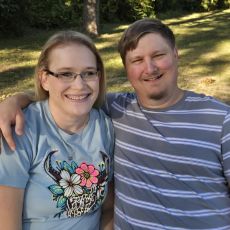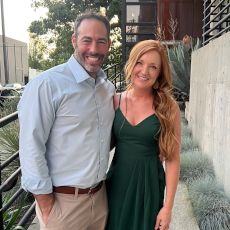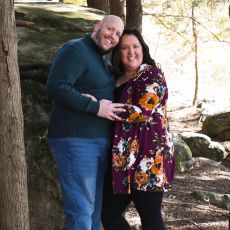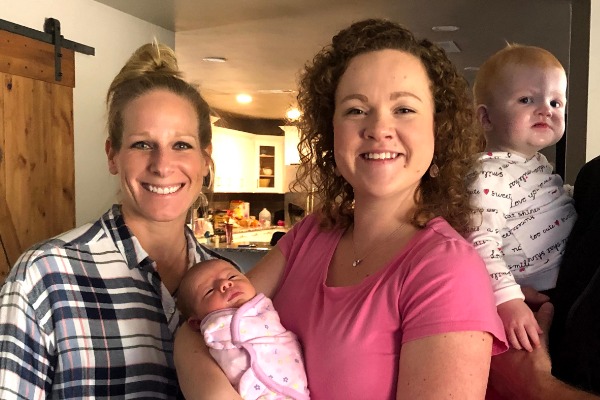Giving Your Child Up for Adoption as an Atheist

As a woman facing an unplanned pregnancy, you are likely under a good deal of stress. It’s understandable. Pregnancy is a life-changing event, and experiencing it before you are ready can induce anxiety about what the next step may be. Our first piece of advice to you, if you find yourself in this situation, is to breathe. You are not the first woman to experience an unplanned pregnancy, nor will you be the last.
Our second piece of advice is to learn as much as you can about your options. As a pregnant woman, you ultimately have three choices: parenting, abortion or adoption. As an adoption agency, we believe it’s important for women to have fair, unbiased information about each of their three options, and this article serves to educate you about the third.
Many women come to adoption with strong religious beliefs, but that doesn’t mean everyone does. If you are an atheist thinking about giving your baby up for adoption (or perhaps an agnostic considering adoption), the adoption process will look the same for you as it does for anyone else. Someone who isn’t religious can absolutely pursue adoption, and you can tailor the process to fit your needs. The first step in this case is to learn what the adoption process could look like for you.
Step 1: Choose adoption for your baby.
This may seem obvious, but the first step in placing your child for adoption is to decide that you do indeed wish to do so. Adoption is a significant decision, and it’s important to take the time to ensure it is the best option for you and your baby. When you’re still processing your options, you can take advice from friends, family members, or even the baby’s father. But the truth, at the end of the day, is that you’re the only one who knows what’s right for you and your child. In determining if adoption is right for you, it can be helpful to talk through your situation with a licensed professional. You are always more than welcome to speak with a social worker at 1-800-ADOPTION.
Step 2: Create an adoption plan based on your individual preferences.
With American Adoptions, you’re in the driver’s seat. In other words, you’re in control of your adoption process. The whole thing will be tailored to your wants and needs to ensure that you get what you need for yourself and your baby. You can be sure that you’ll be respected and listened to during this process.
Step 3: Choose your child’s adoptive parents.
That’s right — you get to choose your child’s adoptive family. If it’s important to you that they are also atheist or unattached to a certain religion, that’s something that your adoption specialist can help you to find. You can also determine other ideal qualities in an adoptive family — where they live, if they already have other kids, etc. — to help you and your adoption specialist know exactly what you’re looking for.
Helpful Information
Step 4: Get to know your baby’s adoptive parents.
After you’ve selected the adoptive family for your child, it’s time to begin to form a relationship with them. We always recommend some degree of communication, or openness, in an adoption situation whenever possible. It may come as a surprise to you, but more than 90 percent of domestic infant adoptions today are at least semi-open. This means the adoptive family will be prepared for some form of communication and relationship. Not only will you benefit from knowing your child is safe, happy and healthy, but your child will know the same of you — and they’ll be able to ask you any questions they will inevitably have as the years pass.
Step 5: Work with your adoption specialist to make a hospital plan.
Like all pregnant women, you’ll need to come up with a birthing plan — how you want to deliver, whether you want pain medication and more. As a woman considering adoption, however, you’ll have some additional factors to consider. Do you want the adoptive family in the room? Do you want to spend time alone with your baby? Do you want to nurse your baby? Your adoption specialist will help you to outline every detail ahead of time so that the day goes exactly according to your preferences.
Step 6: Continue to develop a relationship with your baby’s adoptive parents.
The relationship you began to form with your child’s adoptive parents before placement will continue to grow and develop as your comfort levels change. Many women find that, immediately after placement, they need a little space to grieve. Others want consistent communication immediately after giving birth. Whatever you need, your relationship with your child’s adoptive family can grow and evolve over time.
As a non-religious adoption agency, American Adoptions is happy to work with prospective birth mothers and adoptive families of all faiths and belief systems. To speak with someone about giving your baby up for adoption as an atheist or agnostic, please feel free to reach out to a social worker for free, unbiased information at 1-800-ADOPTION, or request information here.
Disclaimer
Information available through these links is the sole property of the companies and organizations listed therein. American Adoptions provides this information as a courtesy and is in no way responsible for its content or accuracy.







































